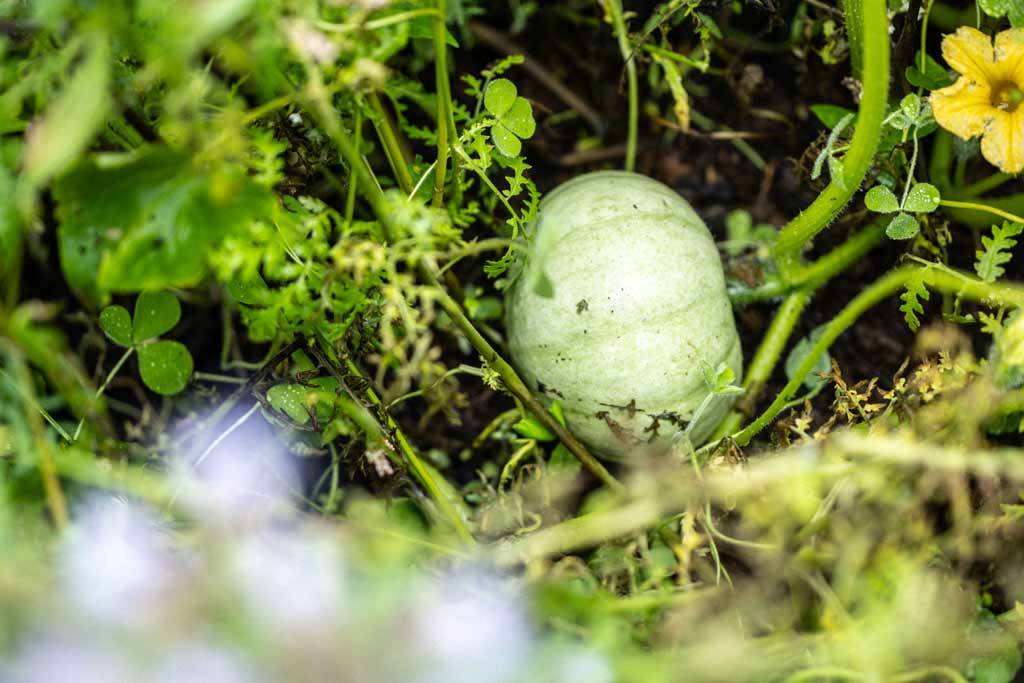
Inspiration at Birch Farm with Joshua Sparkes

This September, we visited Birch Farm in Woolsery, Devon and spent time with Joshua Sparkes, the visionary head gardener who has transformed the 15-acre market garden into an innovative, thriving ecosystem. His approach to gardening has redefined traditional practices, integrating principles from agroforestry, Korean Natural Farming, and biodynamic systems to nurture a balanced and resilient landscape.
Since we came to Caisson 15 years ago, we have been practising regenerative gardening. We do not use chemicals and artificial fertilisers, make our own compost, and manage our fields to create wildflower meadows and woodlands to promote natural regeneration and habitat quality. After seeing Birch Farm’s success, we’re inspired to bring more of Joshua’s methods to Caisson Gardens.
Joshua’s philosophy centres on creating a low-input, low-maintenance environment that prioritises natural ecosystems and biodiversity. His methods combine ideas from Japanese natural farming, permaculture, and regenerative agriculture to make the most of the resources on his land. Joshua’s ability to blend these approaches to promote a self-sustaining landscape struck a chord with us. We sent our gardener, Tristan, to one of Joshua’s courses, and he returned eager to put these ideas into practice at Caisson Gardens.

Bringing Natural Farming Techniques to Caisson Gardens
One of the most exciting aspects we’ll be introducing is a natural, plant-based system inspired by Korean Natural Farming. This method allows us to create our own plant-based inoculants by gathering resources directly from our garden. These inoculants, when applied as sprays, root drenches, or seed soaks, will provide our crops with essential nutrients without the need for synthetic fertilizers or chemical sprays. In the process, we’re also boosting the health of our soil, supporting a rich, natural ecosystem right here at Caisson Gardens.
We’re also experimenting with homemade ferments and tinctures that support soil and plant health. These solutions, made from local plant samples, help to introduce beneficial bacteria, fungi, and yeasts back into the soil, improving its resilience and fertility.
Supporting Biodiversity with Beetle-Friendly Habitats

Another key part of Joshua’s approach is creating habitats that naturally control pests and support biodiversity. Inspired by his example, we’ve begun increasing the areas of uncut grass in our garden to welcome more beetles, which are essential natural pest controllers. Beetles thrive in wild grass and can only travel short distances, so providing these grassy patches around the garden ensures they have safe havens close to their food sources—slugs, snails, and woodlice. This approach helps create a natural balance in our garden, benefiting both plants and soil.
Experimenting with Agroforestry
Following Joshua’s lead, we’re also exploring ways to integrate more agroforestry—a system where edible crops are grown among trees and shrubs—into Caisson Gardens. This low-maintenance, sustainable approach will allow us to expand the variety of crops we grow while enriching the garden’s natural biodiversity.
Each of these changes brings Caisson Gardens even closer to becoming a regenerative, biodiverse environment. We’re excited to explore these methods and to share our progress as we adopt more of Joshua’s innovative approaches.